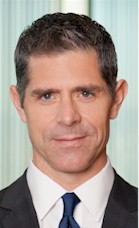
Hotel restaurants compete against performance standards that exist in their customers' minds. Dishes that have excited and inspired them, intriguing and challenging wine lists, on-trend cocktail selections and artfully designed dining interiors that they've experience in the past - these create benchmarks against which every new restaurant experience will invariably be measured. Performance standards in these first two dimensions of a restaurant business, the products on offer and the ambience of the setting, get all the buzz and so receive a great deal of attention from management and critics. A restaurant which consistently underperforms in these aspects of the business is unlikely to survive. READ MORE



















